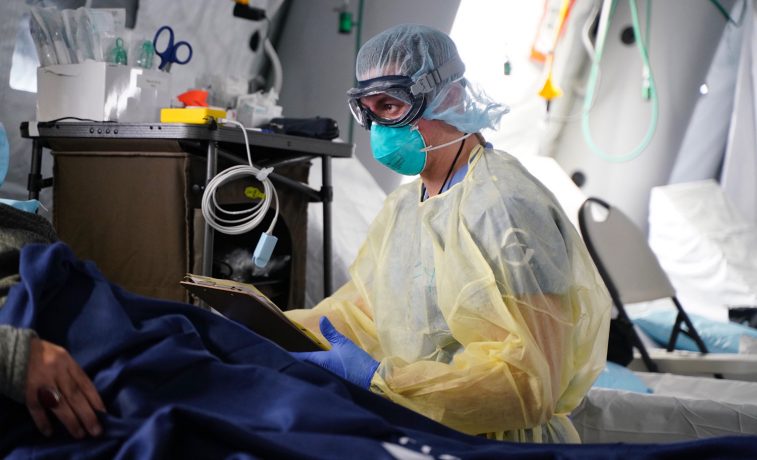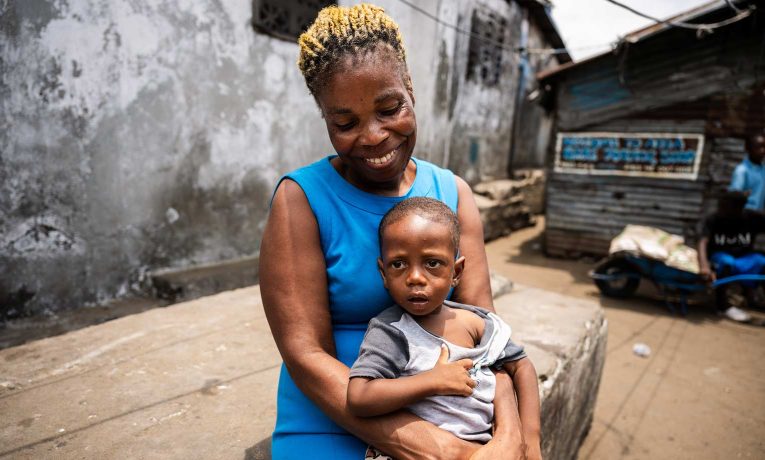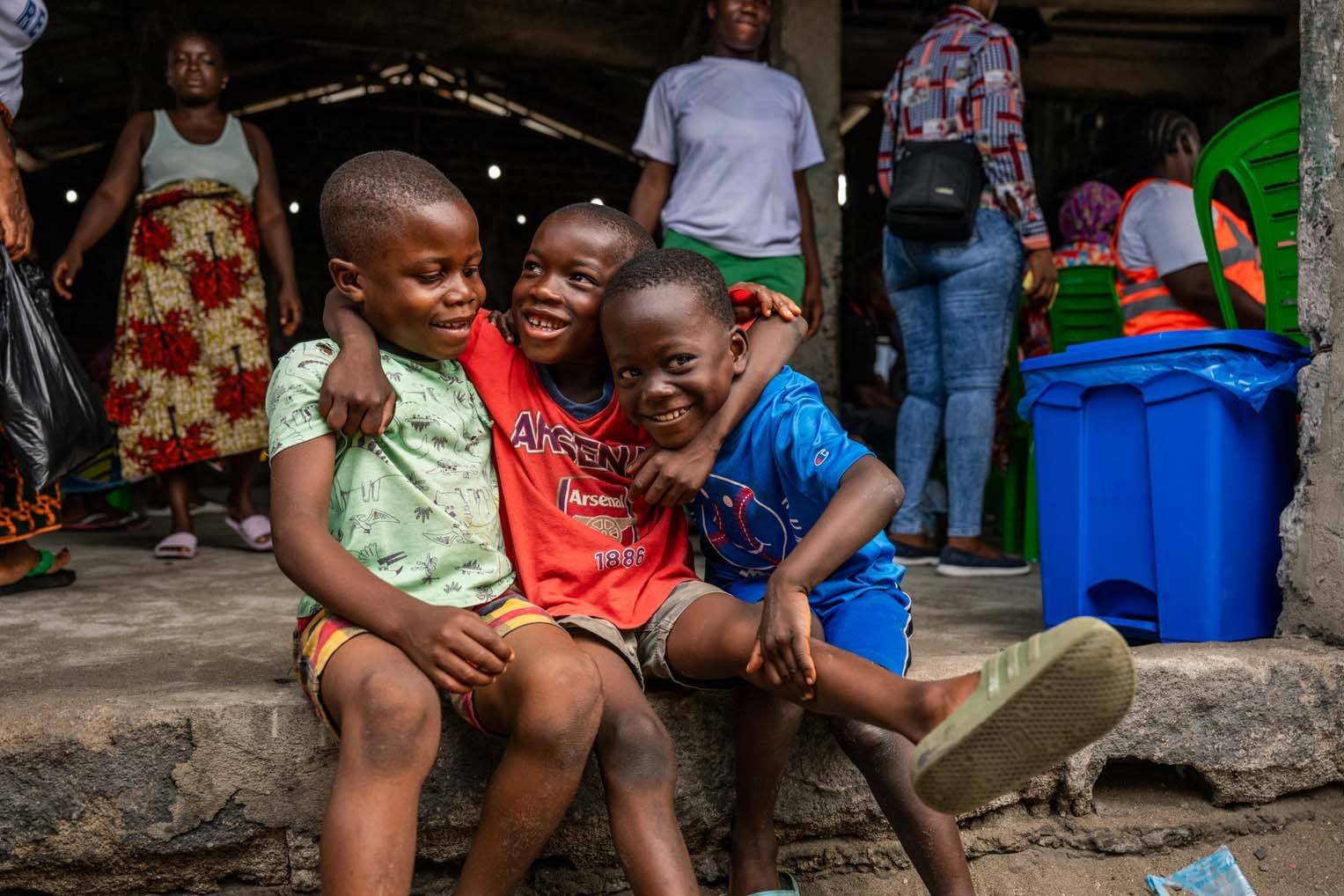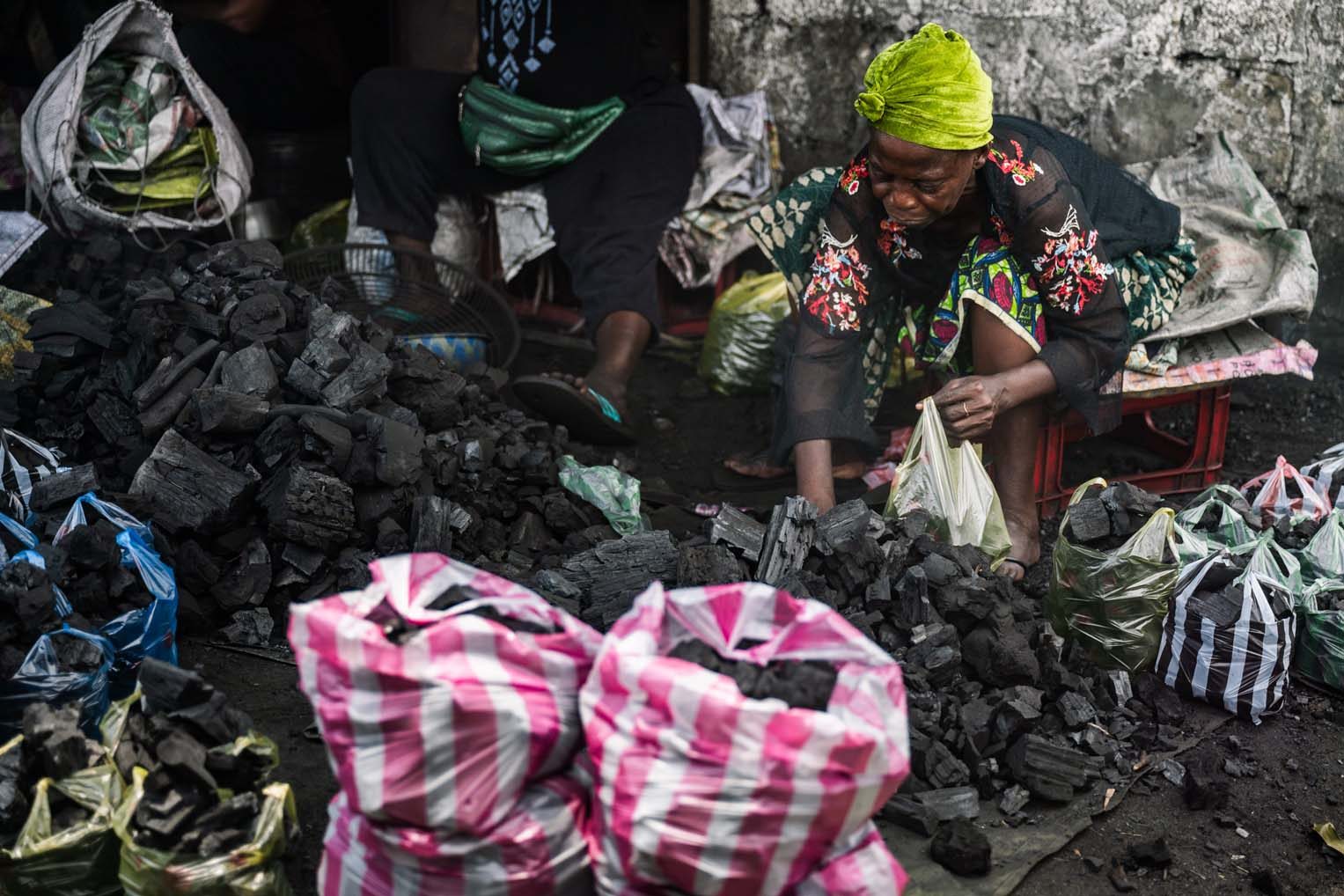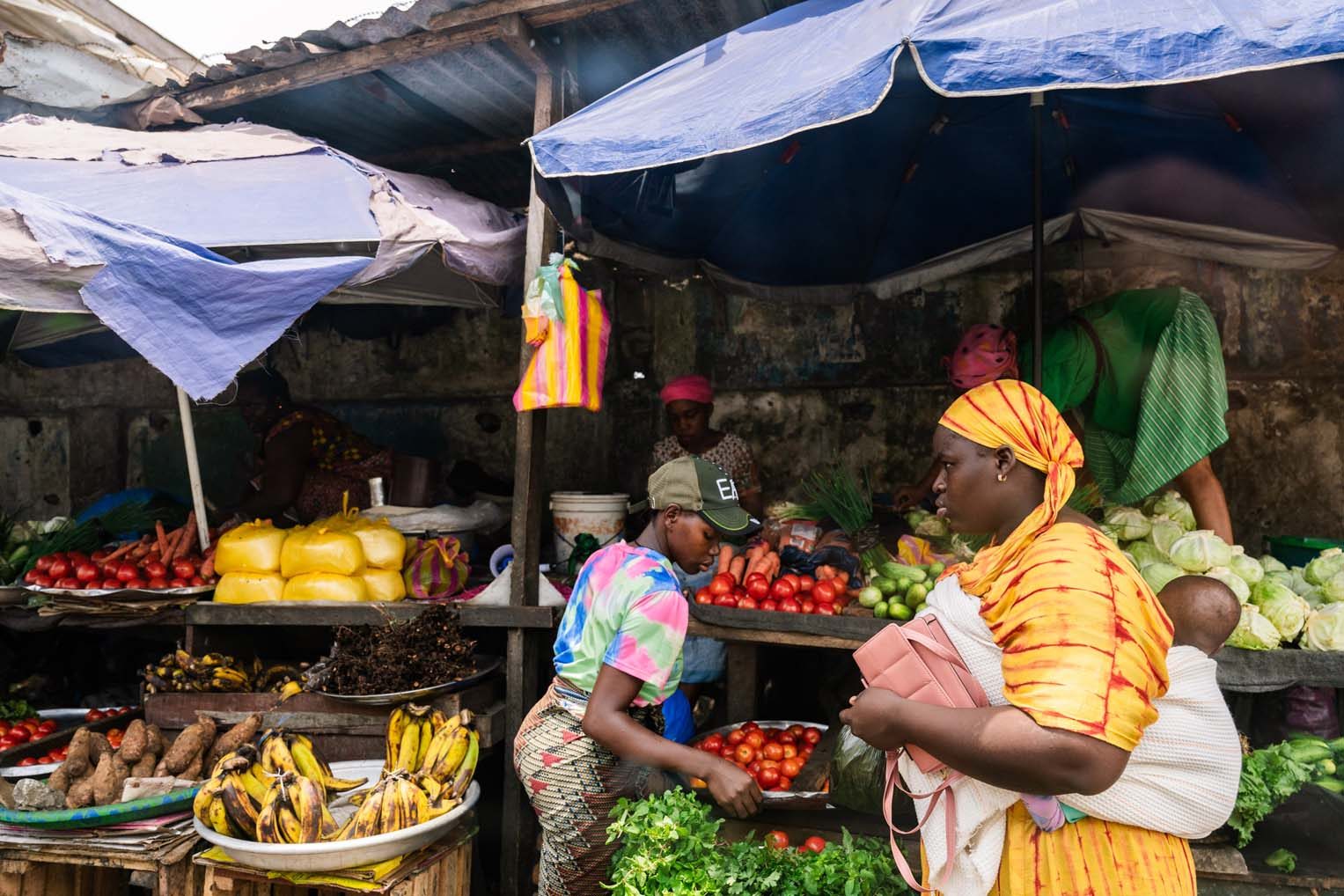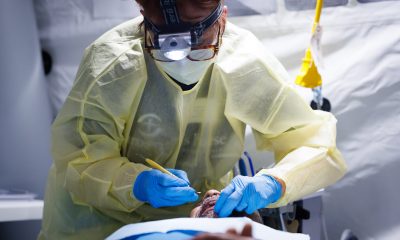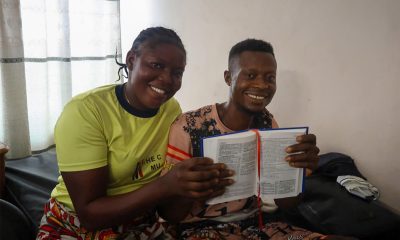Samaritan’s Purse is running a mobile medical unit to provide desperately needed care to Monrovia's West Point area, one of Liberia's oldest and poorest communities in the capital city.
Dorithy stood in the heat holding her grandson, Charles, who hadn’t stopped coughing since the fire. She was welcomed inside by our nurses.
The grandmother, seeking care for the 1-year-old boy, had lost her house two weeks before. She watched it go up in flames, triggered by faulty electrical wiring.
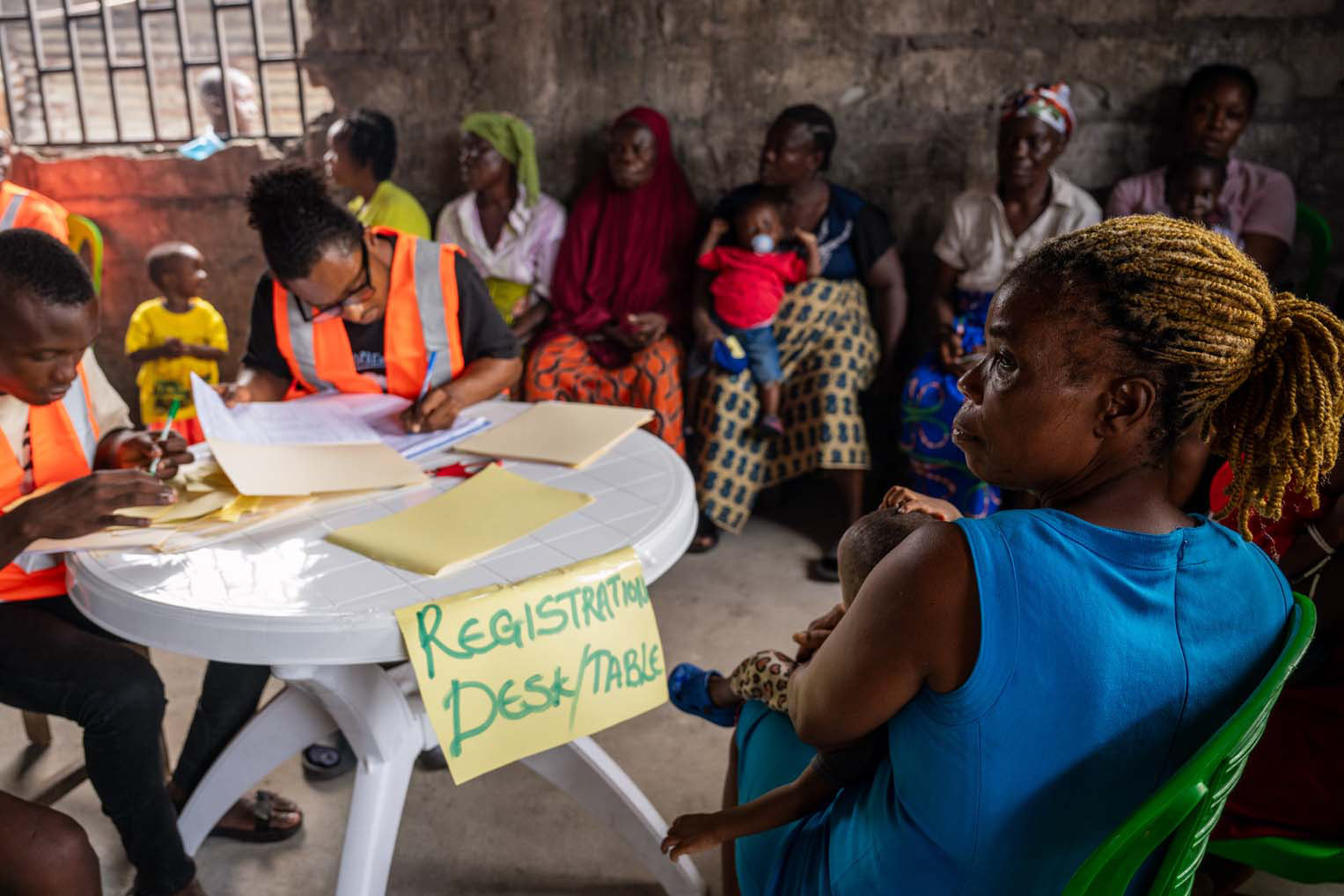
Before visiting the clinic, Dorithy didn’t know where to turn with little Charles.
Dorithy and Charles were among dozens of patients waiting to be seen at our first mobile medical clinic in the community. The meeting space-turned-medical facility at Themore Temple Church was mostly filled with youngsters receiving screenings and treatment for malnutrition.
Samaritan’s Purse provides the clinic’s medical staff, partners with local churches to identify safe locations, and ensures the clinic is known and accessible by residents.
Dorithy said she’d lost everything, including her livelihood. A few days earlier, our team had provided them with emergency food. Today, Charles would receive more emergency nutrition while also being treated for smoke inhalation from the house fire. Since then, he hasn’t been able to breathe well.
“All my things were burned up. We only escaped with our life,” she said. “We are sleeping in a school building. People have helped us with a few clothes.”
Serving a Place Full of Beauty and of Suffering
West Point is full of life—and full of hardship.
Its markets teem with color and movement—vendors selling cassava, secondhand clothes, grilled fish—along narrow, curving alleys. But this coastal area is also among the poorest parts of Liberia’s capital. Many of its residents fled here during Liberia’s brutal civil wars, trading one danger for another: violence for overcrowding, hunger, and disease.
Much of this is related to and worsened by the rising waters and erosion of livable land.
Tens of thousands of people settled in West Point last century, arriving from Liberia’s interior and looking for places to live. Mangrove forests were decimated to make space, lumber, and charcoal. Dunes were excavated. River and coastal vegetation was cleared. As the Atlantic tide pummels the West Point peninsula from the west and the Mesurado River cuts new channels to the east, the land is stripped away year by year.
Hundreds of dwellings have been destroyed. Thousands of people have been displaced. West Point’s population and density have only increased, along with scarcity and disease. But the resources and infrastructure have mostly remained unchanged. There’s really no place for people like Dorithy to live. This is why Samaritan’s Purse has expanded its work in the area. Through our ministry, families are living with hope and no longer feel forgotten by God or His people.
Dorithy didn’t know where else she could turn. Without the small fast-food enterprise she was operating out of her leased home, she couldn’t pay for anything, including much needed medical care for Charles.
“He been giving me hard time from the day of birth. He’s always sick. He don’t eat anything—you give him, he vomit. But this time, our house burned and he inhale the smoke. Since then he been coughing, coughing. He don’t eat anything. That’s why I brought him today.”
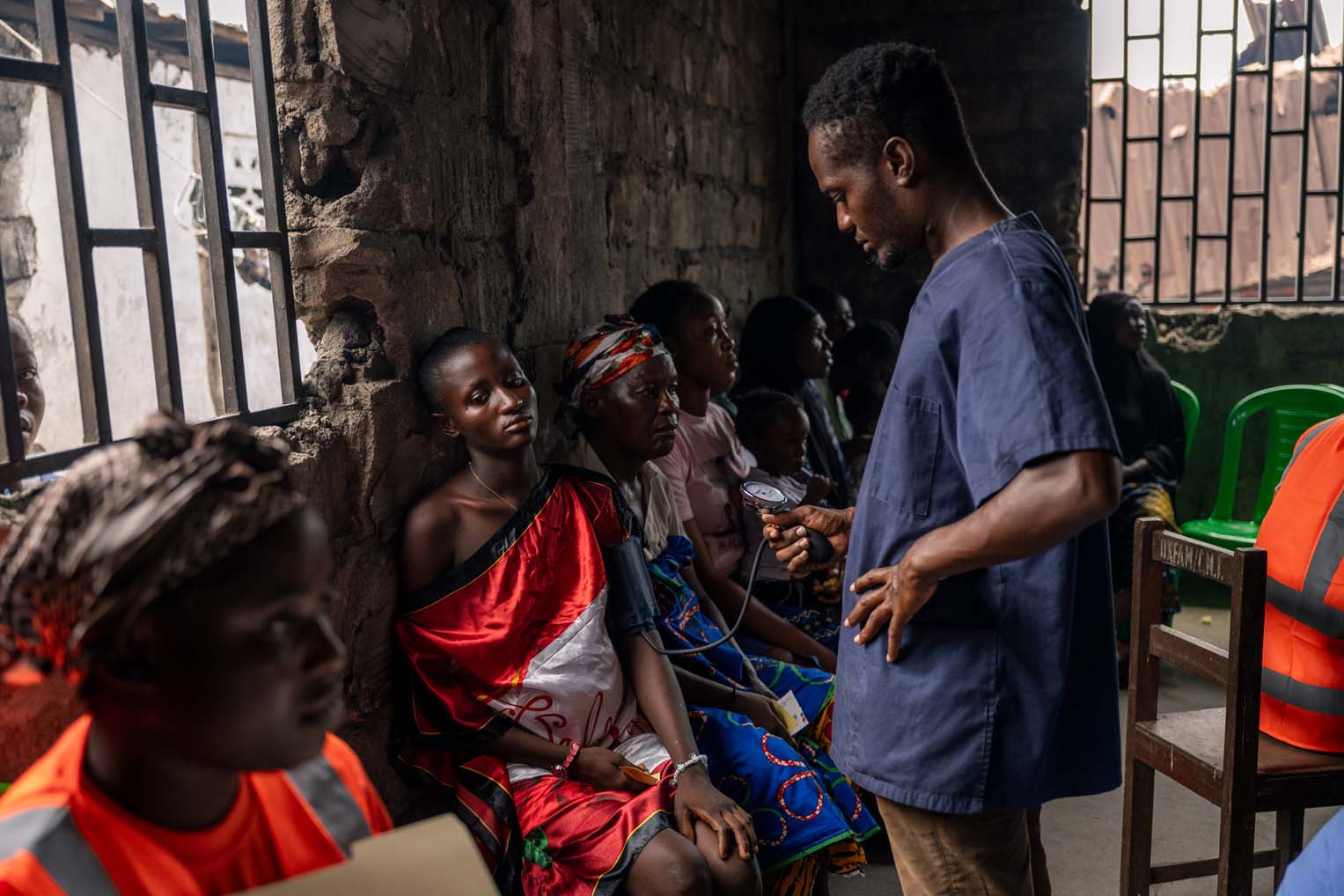
Residents of West Point came for evaluations at our mobile medical unit operating out of local churches.
“I was selling food at the time. I bought food, cook and sell it,” she said. “I need to find something to do. I lost my bike, money, everything. Especially now that I don’t have money and the child is sick on me, the clinic bring a lot of benefit to me. I’m grateful to Samaritan’s Purse for bringing this opportunity to us. It will help me. It will help a lot of people as well.”
At the clinic, Charles received breathing treatments and additional emergency food. We also instructed Dorithy to monitor her grandson for signs of malnutrition and how to care for him in the days ahead. Dorithy said she wouldn’t have known what to do if the medical unit had not shown up in West Point.
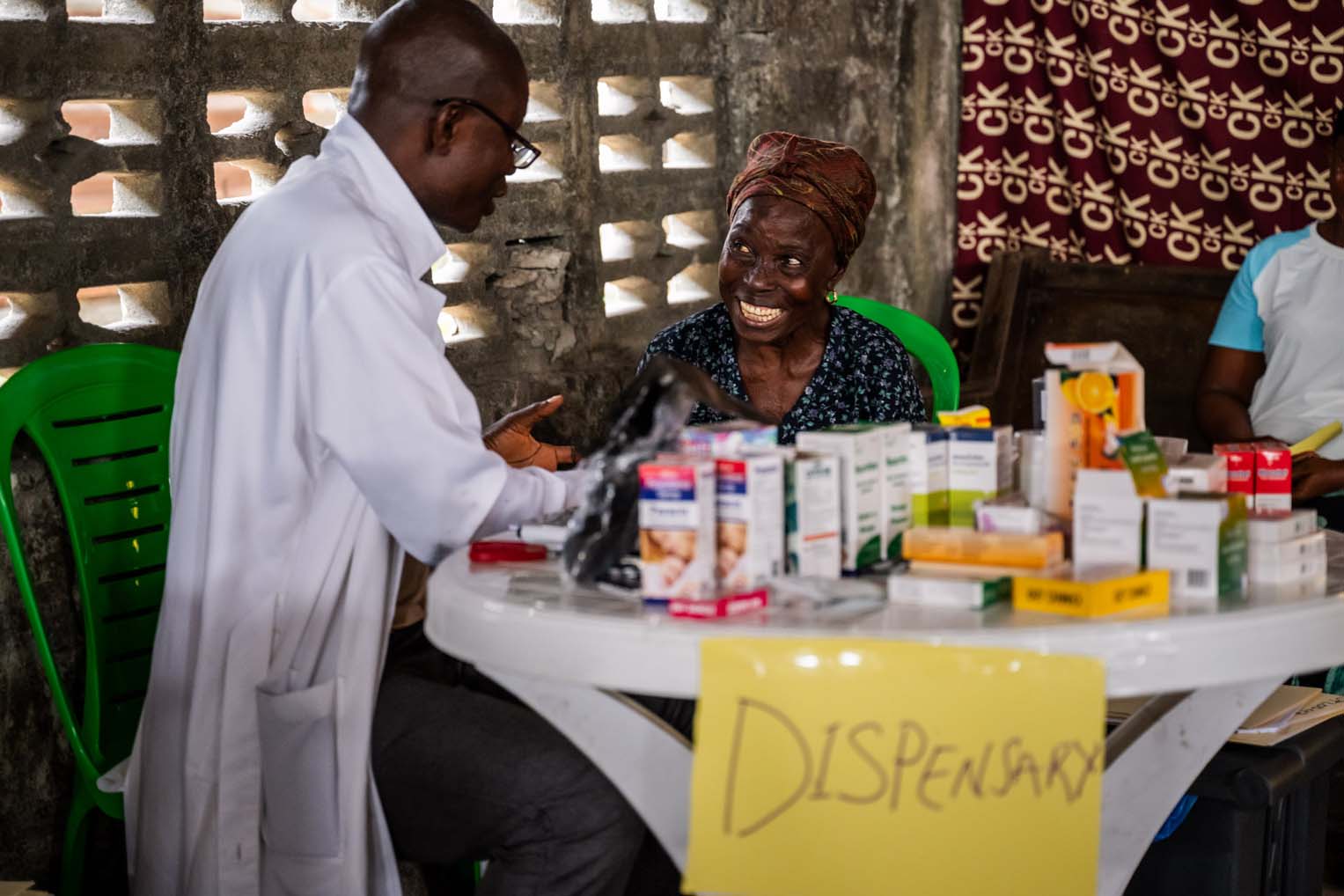
Laughter and relief are available at the dispensary table, where a pharmacist offers both medicine and kindness to patients in West Point.
“Even the government hospital, you go there, they say free—but you will pay, pay, pay before you get treatment,” she said.
Medicine and Gospel Ministry
Deepali Savyasachi, Samaritan’s Purse development officer in Liberia, said that the people of West Point face an uphill battle in terms of housing, access to medical care, proper nutrition, sanitation, education, and protection for vulnerable women and children. Many of these needs are addressed by the mobile medical clinics. In addition, our West Point team is assessing needs for water points, latrines, and handwashing stations in strategic locations.

Families gather early to wait for medical consultations. For many in West Point, this mobile clinic is the only opportunity to see a healthcare provider.
“This place is densely populated. Sanitation is a major issue,” she said. “You see a lot of children sick, malnourished, and we know this clinic can reach them. Teenage pregnancy is very high here. Schools are limited. There are many street kids.”

A nurse checks a patient’s blood pressure. Many residents have no access to regular health care and rely on community-based outreach for treatment.
“We move from zone to zone across West Point,” Deepali explained. “Tomorrow we’ll be at another church compound. We wanted to see how we can use the resources we have to maximize the Kingdom impact.”
Before the medical team released Charles and his grandmother from our care, Edith Perry, one of our nurses, stepped forward and asked if she could pray with them.
“Lord, we need Dorithy and Charles to know they are not alone,” Perry prayed. Later she said, “We see patients, but we also listen. Sometimes people just need to be heard, to know they matter. It’s not just medicine. It’s dignity. It’s a way of saying, ‘God sees you.’”
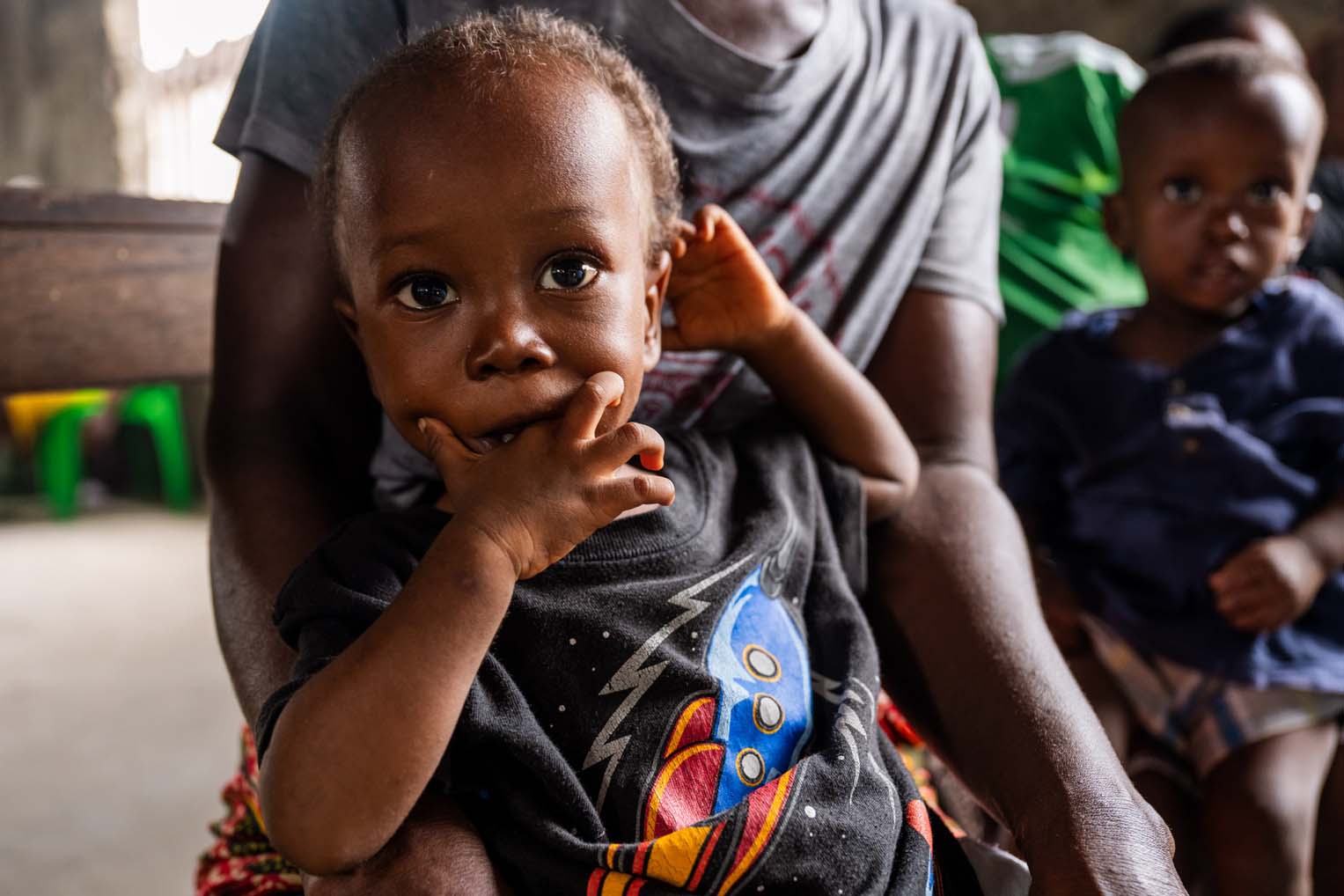
A young boy sits quietly in his parent’s lap, awaiting care at the mobile medical clinic.
